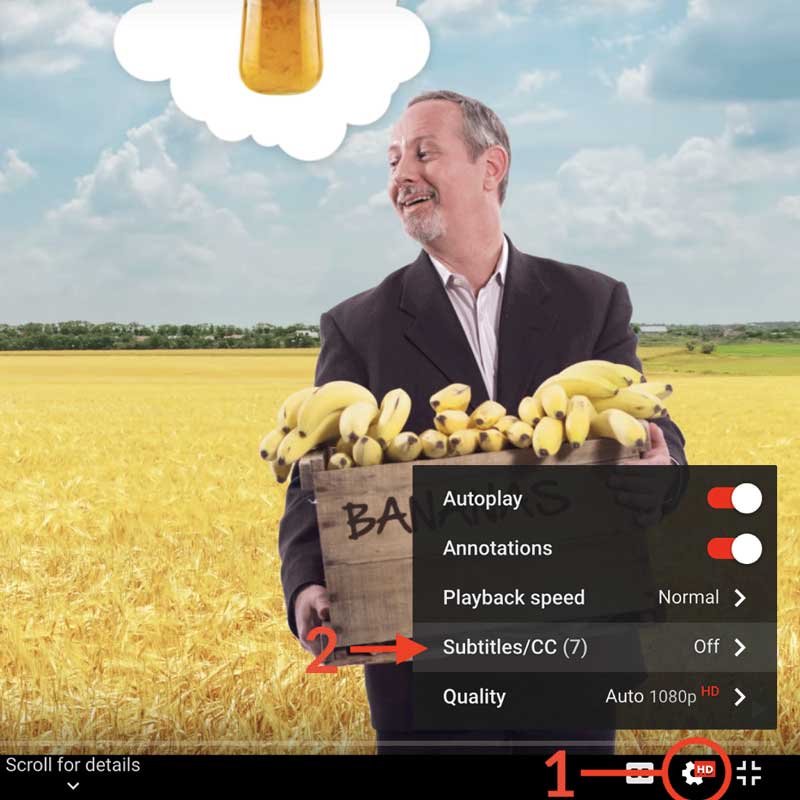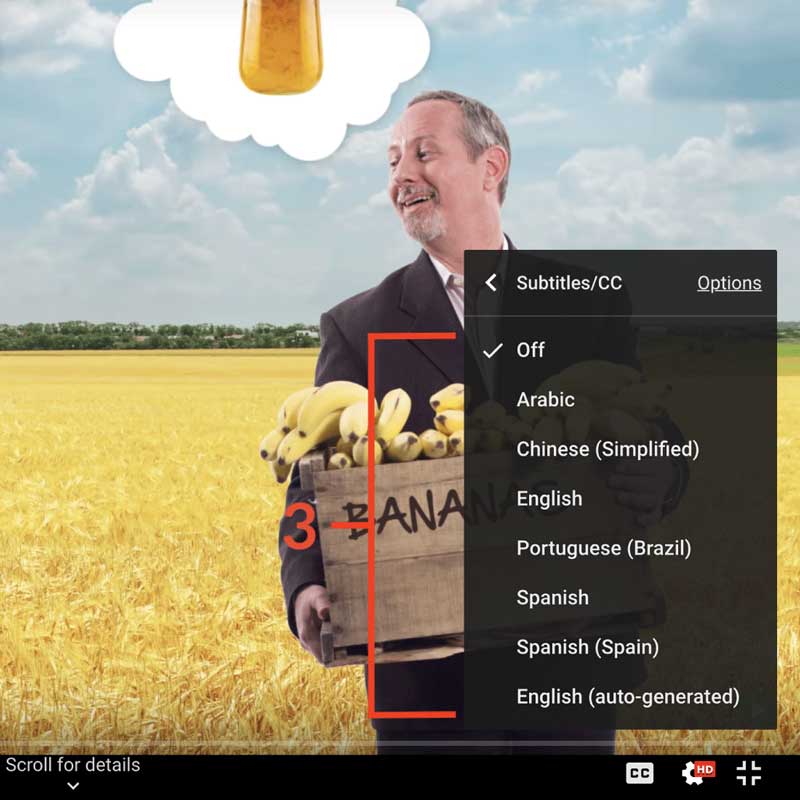The Complacent Class
Course Outline
The Complacent Class
Restlessness has long been seen as a signature trait of what it means to be American. We've been willing to cross great distances, take big risks, and adapt to change in ways that have produced a dynamic economy. From Ben Franklin to Steve Jobs, innovation has been firmly rooted in American DNA.
What if that's no longer true?
Let’s take a journey back to the 19th century – specifically, the Chicago World’s Fair of 1893. At that massive event, people got to do things like ride a ferris wheel, go on a moving sidewalk, see a dishwasher, see electric light, or even try modern chewing gum for the very first time. More than a third of the entire U.S. population at that time attended. And remember, this was 1893 when travel was much more difficult and costly.
Fairs that shortly followed Chicago included new inventions and novelties: the telephone, x-ray machine, hot dogs, and ice cream cones.
These earlier years of American innovation were filled with rapid improvement in a huge array of industries. Railroads, electricity, telephones, radio, reliable clean water, television, cars, airplanes, vaccines and antibiotics, nuclear power – the list goes on – all came from this era.
After about the 1970s, innovation on this scale slowed down. Computers and communication have been the focus. What we’ve seen more recently has been mostly incremental improvements, with the large exception of smart phones.
This means that we’ve experienced a ton of changes in our virtual world, but surprisingly few in our physical world. For example, travel hasn’t much improved and, in some cases, has even slowed down. The planes we’re using today? They were designed half a century ago.
Since the 1960s, our culture has gotten less restless, too. It’s become more bureaucratic. The sixties and seventies ushered in a wave of protests and civil disobedience. But today, people hire protests planners and file for permits. The demands for change are tamer compared to their mid-century counterparts.
This might not sound so bad. We’ve entered a golden age for many of our favorite entertainment options. Americans are generally better off than ever before. But the U.S. economy is less dynamic. We’re stagnating. We’re complacent. What does this mean for our economic and cultural future?
Teacher Resources
Transcript
Do we still live in a world of wonder, or have we become too complacent and too set in our ways? And if so, how and why? To consider this question, let's go back to one of the great wonders of American history.
In 1893, Chicago hosted the World's Fair. Over 25 million awestruck visitors came to an artificially constructed city with over 200 custom-made buildings surrounded by man-made canals and lagoons. Twenty-five million that was more than a third of the entire U.S. population at that time. Imagine that. Americans in 1893 were far from wealthy, yet even without cars or planes, so many of them found their way to Chicago. This far exceeds the attendance at modern events, such as the Olympics or World Cup, or even the yearly traffic at Disney World.
Now why would so many make such a trip? To get a glimpse of the future. The world was changing fast, and that glimpse could be breathtaking and unprecedented. Just imagine what that experience must have been like, as a grown adult to take your first ride on a Ferris Wheel, or to be transported along the first moving sidewalk, or to watch genius inventors such as Nikola Tesla demonstrate what they had created. You'd first experience the dishwasher, or try Wrigley's gum. For many who had had only kerosene lamps, the thousands of glowing bulbs of various shapes and colors would be their very first glimpse of electric light. And all this innovation, it was not unique to Chicago's fair.
At the Philadelphia fair, you could experience the wonder at first hearing a human voice through a telephone. Or at the Buffalo fair, you would be shocked at seeing what's beneath your skin via an X-ray machine, all the while tasting your first hot dog or ice cream cone. These fairs are just a glimpse into that earlier American pioneer culture that drove dramatic economic growth of what's been called the hockey stick of human prosperity. Early American pioneers -- they transformed the country, and indeed the broader world, through a dramatic series of grand projects.
Change didn't slow as the 20th century dawned, and in some ways it accelerated. We added radio and then TV, the first cars and airplanes, vaccines and antibiotics. A bit later, nuclear power all the while fighting and winning two World Wars. Even computers date from that era. And we weren't done: What about carving an interstate highway system throughout most of the US? Sure. Walking on the moon? Okay, no problem. Then, something happened in the 1970s and beyond. Incremental improvements continued, but there was really only one grand, epic project for the history books -- this. There was nothing resembling this -- 50 years ago -- nothing that so easily enabled human beings to communicate with each other, or to access the world's information so readily. However, beyond computers and communication devices, most of the physical world we see today is not that different from the 1960s. While our virtual world has been booming and changing, our physical world has been surprisingly static.
For hundreds of years we dramatically increased our ability to travel across longer distances, and at ever-higher speeds. But now the speed of travel is stagnating, or even slowing, because of traffic or degraded mass-transit systems. We scrapped supersonic travel, and we still rely heavily on a plane designed in the late 1960s. This is just a few examples.
In general, we seem to be more content with slamming the brakes on dramatic upheaval. We prefer safety and comfort to change. Rather than seek dynamism, we so often want to be protected from it, and so a complacency has spread. The shift in the American attitude from the pioneering spirit to the complacent can be seen in many ways. Our ancestors packed their wagons and ventured into unknown lands, often in the face of pretty high risk. Today, the trend is toward staying put, whether in terms of where you live or where you work. Our kids have gone from taking dodgeballs to the face, as I once did in sixth grade, to not being allowed to play tag or maybe even go outside at all, with or without sunscreen. We've gone from the counterculture and Russian novels and Nietzsche, to a culture of education, focusing on safe spaces and trigger warnings.
The 1960s and '70s had massive marches for civil rights, and against the war in Vietnam. Change was demanding, often regardless of risk. Today you need to hire a protest planner, file for permits, and be confined to controlled demonstration zones. We've bureaucratized so much of our culture, including its very acts of protest. Our public spaces are barricaded and restricted from any kind of possibly disorderly public demonstration. Again, we prefer safety and control over change. This complacency shows through in our economic performance. Rates of productivity growth, wages, geographic mobility, and indeed economic growth -- they're all down. The Millennials measure as being the least entrepreneurial generation in recent history. For much of the economy change has been replaced by partial stasis. So maybe you ask, "Well, what's wrong with stasis?" Things are pretty comfortable and safe up here on top of the hockey stick. It's arguably the golden age of TV, gaming, and podcasts. Online education, too. Can't we just enjoy it all? Well, we're seeing some troublesome warnings that this lack of change is not sustainable forever.
Societies require dynamism to refresh and renew their ideas, to restimulate their economic growth, to make it possible to pay the bills in the future. So without enough dynamism, indeed, a crisis is brewing, and it's likely that some big changes are coming along down the road in a way we can no longer limit or control. I call that "The Great Reset." This also brings up a broader and more fundamental question. Is it possible for humanity to progress steadily, for this hockey stick blade to continue stretching upwards? Or is there something inherently cyclical about human history whereby very good periods tend to be followed by something rather worse? We'll get to those questions, but first, let's explore the factors behind our complacency, starting with an often-missed, disturbing side effect of the internet revolution.
Next up, Tyler reveals how changes in our virtual world are creating troublesome bubbles in our physical world. Click "Next Video" to see the New Era of Segregation. Still here? Check out Marginal Revolution University's other popular videos.
Subtitles
- English
- Spanish
- Chinese
Thanks to our awesome community of subtitle contributors, individual videos in this course might have additional languages. More info below on how to see which languages are available (and how to contribute more!).
How to turn on captions and select a language:
- Click the settings icon (⚙) at the bottom of the video screen.
- Click Subtitles/CC.
- Select a language.


Contribute Translations!
Join the team and help us provide world-class economics education to everyone, everywhere for free! You can also reach out to us at [email protected] for more info.
Submit subtitles
Accessibility
We aim to make our content accessible to users around the world with varying needs and circumstances.
Currently we provide:
- A website built to the W3C Web Accessibility standards
- Subtitles and transcripts for our most popular content
- Video files for download
Are we missing something? Please let us know at [email protected]
Creative Commons

This work is licensed under a Creative Commons Attribution-NoDerivatives 4.0 International License.
The third party material as seen in this video is subject to third party copyright and is used here pursuant
to the fair use doctrine as stipulated in Section 107 of the Copyright Act. We grant no rights and make no
warranties with regard to the third party material depicted in the video and your use of this video may
require additional clearances and licenses. We advise consulting with clearance counsel before relying
on the fair use doctrine.


